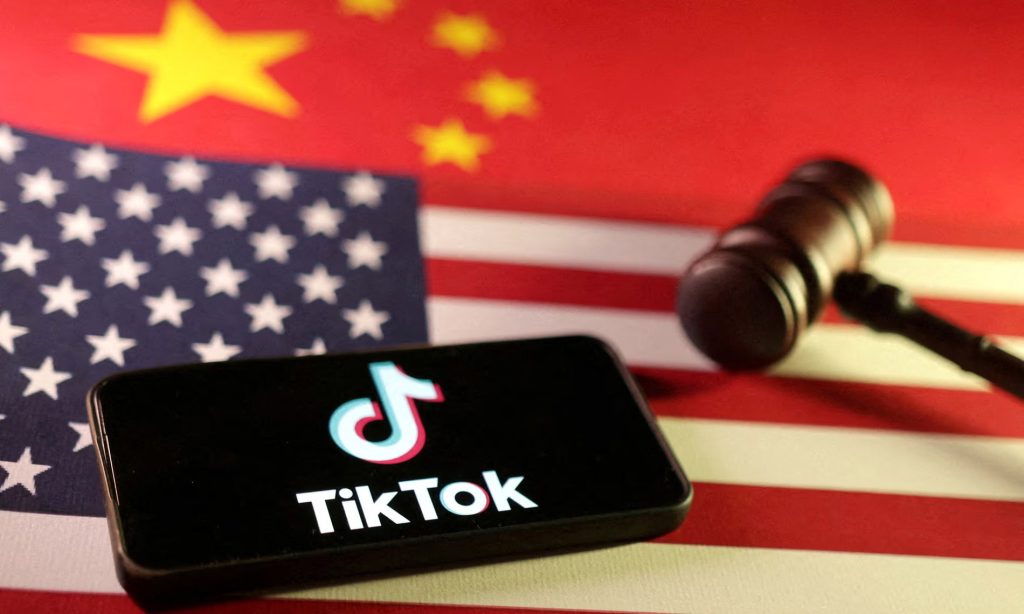
The potential TikTok ban in the U.S., scheduled for January 19, marks a significant shift for both the social media platform and its users. The impact of such a move extends beyond just the app’s functionality—it touches on user experience, data acquisition, the government and political landscape, and even the broader global tech industry. Here’s a look at how this decision could affect multiple areas:
The most immediate and personal effect of the TikTok ban will be on U.S. users. Once the app is deactivated, users will no longer have access to their accounts or content. When trying to open the app, users will encounter a pop-up notification guiding them to a website detailing the ban. For those who wish to retain their data, TikTok will allow users to download all their information, ensuring that personal records are kept for future reference.
This decision significantly impacts the user experience, especially for those who have spent years curating content, building followings, or simply enjoying the entertainment and social connection the platform offers. It also raises important questions about data privacy, as users will now have to decide how they handle the data associated with their profiles, particularly in light of the political reasons behind the ban.
The U.S. government’s decision to ban TikTok is primarily motivated by political concerns, especially around national security and the growing influence of China. For many in the U.S. political sphere, this ban serves as a demonstration of toughness toward China and aligns with broader geopolitical objectives.
However, the ban could also have broader economic ramifications. American internet companies stand to gain from TikTok's exit, as the absence of such a dominant platform opens up opportunities to capture market share in the highly competitive social media space. Companies like Instagram, YouTube, and Snapchat may see an uptick in usage as users search for new platforms to share content.
On the other hand, the ban could damage the reputation of the U.S. government internationally, especially considering America’s stance on promoting an open, free internet. The decision could be seen as contradictory to the principles of global free markets and fair competition, leading to questions about the fairness of such a move against a popular platform, particularly one owned by a private company like TikTok.
The most obvious direct effect will be felt by ByteDance, TikTok’s parent company. TikTok is an essential revenue stream for ByteDance, especially in the U.S. market, where the platform has a large and lucrative user base. A ban would mean losing not only a significant portion of their users but also substantial advertising revenue.
Additionally, ByteDance would have to dedicate considerable resources to managing the fallout, including legal battles and public relations crises. The company has already been facing challenges related to data privacy concerns and regulatory pressure in various markets. Losing the U.S. market would be a blow to ByteDance’s aspirations of global expansion and could damage its ability to generate revenue in other regions, as the ban could set a precedent for similar actions in other countries.
TikTok’s situation serves as a warning signal to Chinese internet companies that are aiming to expand internationally. The platform’s rise in global markets has been meteoric, but it also highlights the risks that companies from non-Western countries face when trying to penetrate the U.S. and European markets. These companies must navigate complex political landscapes and address national security concerns tied to user data.
If TikTok is forced to sell or face acquisition by an American company to avoid the ban, it could be seen as a setback for Chinese companies trying to gain a stronger foothold in global tech. The incident might also fuel data security fears, with countries growing increasingly wary about where their citizens' data is stored and who has access to it.
An often-overlooked aspect of the TikTok ban is how it affects American parents and their attitudes toward the app. A survey reveals that 50% of U.S. parents believe that banning TikTok will improve children's safety, a response driven largely by concerns about the negative impact of TikTok’s content. From issues related to addiction, privacy, to exposure to harmful content, many parents believe that the ban could protect children from potential risks.
Despite TikTok’s popularity, particularly among young people, concerns about the platform's algorithm-driven content and its potential to influence young minds negatively have contributed to the call for a ban. However, it’s important to note that this view is not universal—many believe that the benefits of creativity and self-expression outweigh the concerns, and other platforms could present similar risks.
The proposed TikTok ban in the U.S. promises to create widespread consequences across multiple sectors. For users, it means the loss of access to a beloved platform, along with the potential loss of data. For the U.S. government, the ban is a political move with both domestic and international implications. For ByteDance, it represents a significant financial loss, while also raising questions about the future of Chinese companies in the global tech space.
Finally, TikTok’s troubles underscore the increasingly politicized nature of the internet and how companies must navigate national security concerns and data privacy issues to thrive internationally. Whether this ban will be permanent or temporary remains to be seen, but it’s clear that it will have lasting effects on global internet culture, business practices, and the future of international tech regulation.